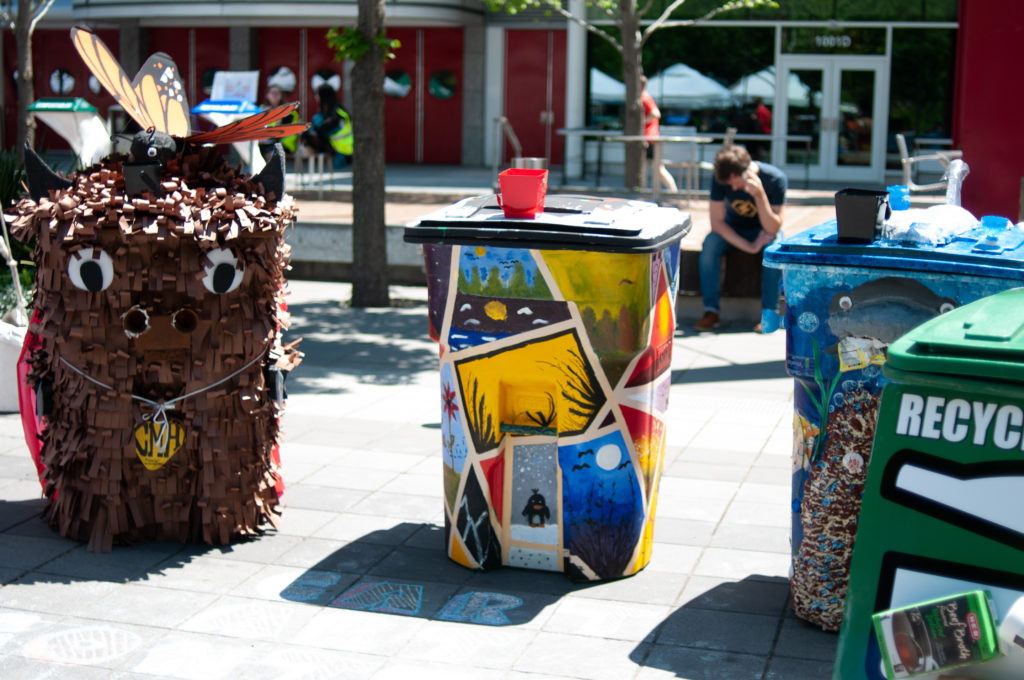Green Cities
Houston aims for a zero-waste Earth Day
February 12, 2020
With two months until Earth Day 2020, cities around the world are preparing events to recognize the day. But with each event comes challenges.
Events that draws thousands of people not only have a significant carbon footprint — electricity for sound systems, emissions from cars, refrigerants for drinks — but they can also leave behind literally tons of garbage. And an Earth Day event that creates a mess of litter kind of defeats the purpose, right?
Houston, the fourth-largest city in the United States, is no stranger to these challenges. But through a recent partnership with the Citizens’ Environmental Coalition, the city is committing to a zero-waste Earth Day.
“Many years ago, Earth Day in Houston was an exuberant celebration characterized by enthusiastically large crowds (and abundant trash), loud music and not much action,” said Rachel Powers, executive director at Citizens’ Environmental Coalition. “We set out to change the event by reducing waste that was generated and encouraging people to commit to improve the environment after the event.”
A zero-waste event is defined as one that diverts at least 90 percent of waste to composting, recycling or reusing. In other words, it’s an event that pulls out all the stops to avoid dumping waste in a landfill.
Earth Day in Houston isn’t technically zero waste, but it’s getting there: In 2018, organizers diverted 70 percent of their waste by weight. To do that takes a lot of planning, organizing and communicating.
Most notably, for the last several years, organizers set up recycling and composting stations around the park. Each station has signs and ambassadors, who help people properly dispose of different materials.
“We had a troupe of cosplay volunteers and a few mascots act as champions for recycling, and they were a big hit,” said Powers.

Behind the scenes, organizers work with recycling and composting vendors to accept waste and ensure everything got to the right place. Perhaps most importantly, Citizens’ Environmental Coalition weighs and tracks all the waste. This allows them to record everything — like the most common items trashed — and gives them the chance to improve each year.
For example, plastic utensils were the most commonly trashed items in 2018. For 2019, organizers purchased compostable utensils, which they distributed to market vendors. That same year, to reduce single-use plastic water bottles, the coalition provided water fillers for reusable bottles.
Houston’s signature Earth Day event takes place at Discovery Green, a 12-acre park in the heart of downtown. The park sees over 1.5 million visitors to its 600 free events annually. The park is also “carefully designed, meticulously maintained,” said Powers, and thus a hard place to host typical environmental activities like picking up trash and planting trees.
Instead, the Citizens’ Environmental Coalition uses events like Earth Day to educate the public by drawing attention to daily behavior.
“Earth Day is the one time of year when many Houstonians think specifically about the environment,” said Powers. “The event is our largest forum each year for carrying our [educational and environmental] objectives.”
By hosting a zero-waste event, the group showcases more sustainable actions — like composting or swapping single-use plastics for more sustainable alternatives — and encourages people to stick to these actions after the event.
Millions will take to the streets on April 22 for Earth Day 2020. Where will you be? Register or join an Earth Day event.